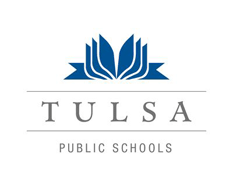
BloomBoard’s observation tool, EdReflect, has been used across the state of Arkansas since fall 2014. Last year, the Arkansas Department of Education piloted Observation Engine, an online observation training and calibration tool from Empirical Education Inc., in four districts under the state’s Equitable Access Plan. Accessible through the BloomBoard platform, Observation Engine allows administrators and other teacher evaluators to improve scoring calibration and reliability through viewing and rating videos of classroom lessons collected in thousands of classrooms across the country.
Paired with BloomBoard resources and training, the results were impressive. In one district, the number of observers scoring above target increased from 43% to 100%. Not only that but the percent discrepancy (scores that were two levels above or below the target) decreased from 9% to 0%. Similar results were found in the other three pilot districts, prompting decision makers to make Observation Engine readily available to districts throughout the state.
“EdReflect has proven to be a valuable platform for educator observations in Arkansas. The professional conversation, which results from the ability to provide timely feedback and shared understanding of effective practice, has proven to ensure a transparency and collaboration that we have not experienced before. With the addition of Empirical Education’s Observation Engine, credentialed teacher observers have ready access to increase inter-rater reliability and personal skill. For the first time this year, BloomBoard Collections and micro-credentials have begun meeting individualized professional learning needs for educators all over the state.”
– Sandra Hurst, Arkansas Department of Education
In July, the Arkansas Department of Education decided to offer Observation Engine to the entire state. About half of all districts in the state opted in to receive the service, with the implementation spanning three groups of users in Arkansas. The Beginning Administrators group has already started pursuing a micro-credential based on Observation Engine. Micro-credentials are a digital form of certification that indicate a person has demonstrated competency in a specific skill set. The Beginning Administrators group can earn their “Observation Skills for Beginning Administrators” micro-credential by demonstrating observation skill competencies using Observation Engine’s online observer calibration tool to practice and assess observation skills.
Next month, the 26 more districts under the Equitable Access Plan and the remaining Arkansas districts will begin using Observation Engine. We look forward to following and reporting on the progress of these districts during the 2016-17 school year.



